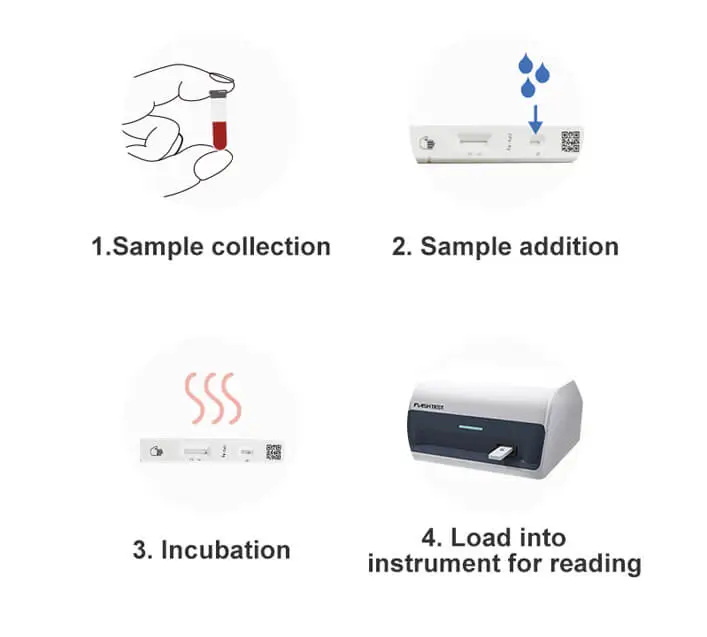- +1-707-722-7066
- care@flashtestbio.com
English
FIA is a diagnostic test used for the detection of specific antigens in cats. In the context of felines, there are various FIA tests that can be conducted to detect antigens associated with different pathogens or diseases. For example, FIA tests can be used to detect the presence of antigens related to diseases like feline leukemia virus (FeLV) or feline infectious peritonitis (FIP) in cats. FIA tests offer a quick and accurate method for diagnosing certain diseases in cats by detecting specific antigens associated with those diseases. They help veterinarians identify infections and initiate appropriate treatment plans promptly.
Feline FIA (Feline Immunodeficiency Virus Infection Assay) is important for several reasons. Feline immunodeficiency virus (FIV) is a viral infection that affects domestic cats, leading to immune suppression and increased susceptibility to other infections. With Feline FIA, veterinarians can quickly and accurately diagnose FIV in cats, allowing for early intervention and management of the disease. This test is especially critical for multi-cat households and shelters, as it helps prevent the spread of the virus and ensures appropriate care for FIV-positive cats. Regular Feline FIA screening is key to maintaining the well-being and health of feline populations.

Get In Touch With Us Now!
Tel:
+1-707-722-7066Email:
care@flashtestbio.comAdd:
Blk A4 - F2, Liyuan Development Zone, Binhu District, Wuxi, China